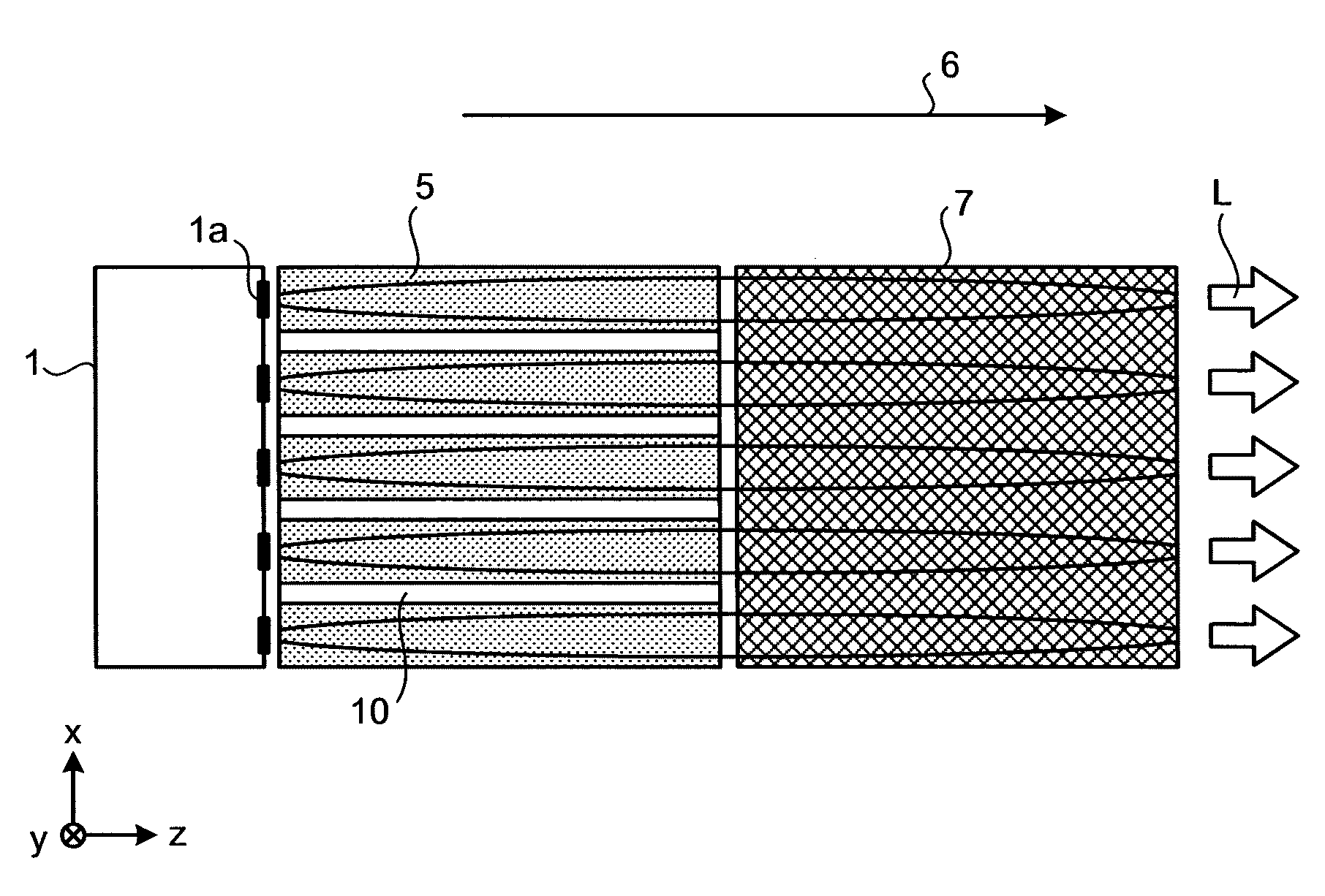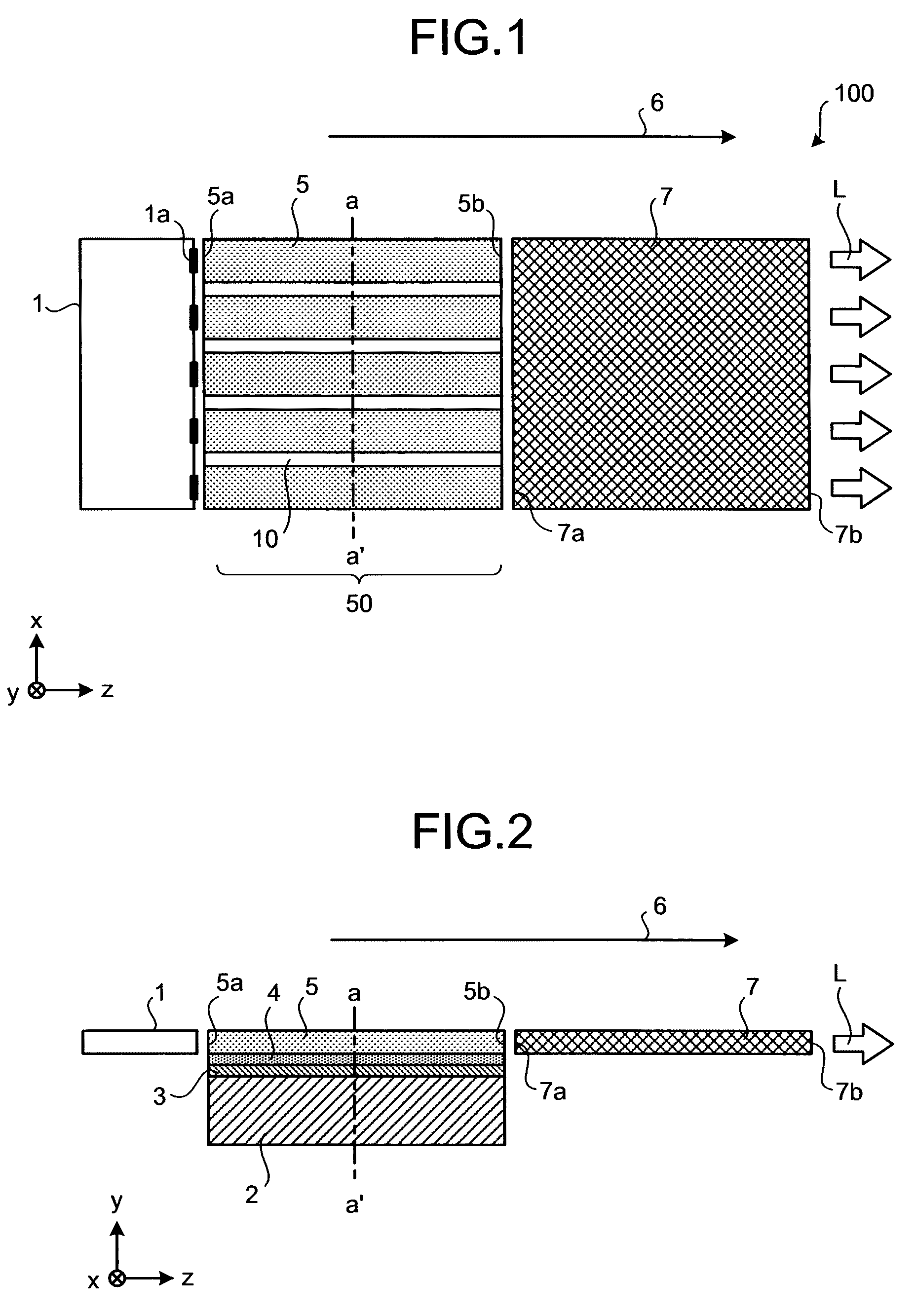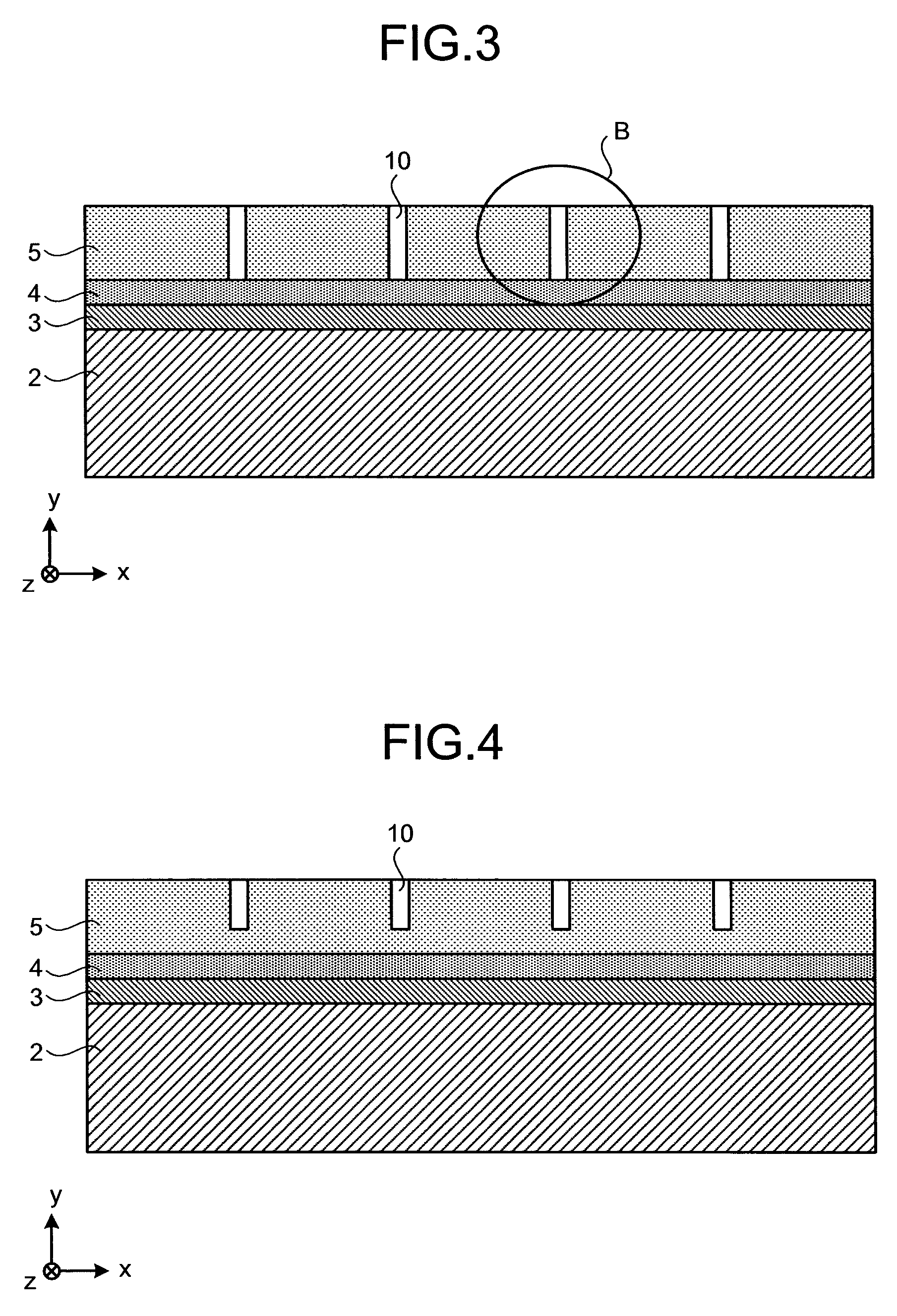Solid-state laser element
a laser element and solid-state technology, applied in lasers, laser cooling arrangements, laser details, etc., can solve the problems of two-dimensional waveguide lasers with breaking limits, and two-dimensional waveguide lasers limited in high-power operation
- Summary
- Abstract
- Description
- Claims
- Application Information
AI Technical Summary
Benefits of technology
Problems solved by technology
Method used
Image
Examples
embodiment (
Embodiment(s)
[0053]FIG. 1 is a top view illustrating a configuration of a wavelength conversion laser device according to an embodiment of the present invention, and FIG. 2 is a cross-sectional view of the configuration of the wavelength conversion laser device according to the embodiment of the present invention from a lateral view. Incidentally, in FIGS. 1 and 2, an optical axis representing a laser oscillation direction is denoted by an optic axis 6.
[0054]A planar waveguide type wavelength conversion laser device 100 is a laser system in which grooves (groove wall surfaces) are formed on a laser medium to suppress a parasitic oscillation and an extraction of energy due to amplification of a spontaneous emission light in a direction other than the direction of the laser beam axis (the optic axis 6). The wavelength conversion laser device 100 is used, for example, in the optical information processing field and the like, as a light source of a laser display device or an optical mem...
PUM
 Login to View More
Login to View More Abstract
Description
Claims
Application Information
 Login to View More
Login to View More - R&D
- Intellectual Property
- Life Sciences
- Materials
- Tech Scout
- Unparalleled Data Quality
- Higher Quality Content
- 60% Fewer Hallucinations
Browse by: Latest US Patents, China's latest patents, Technical Efficacy Thesaurus, Application Domain, Technology Topic, Popular Technical Reports.
© 2025 PatSnap. All rights reserved.Legal|Privacy policy|Modern Slavery Act Transparency Statement|Sitemap|About US| Contact US: help@patsnap.com



